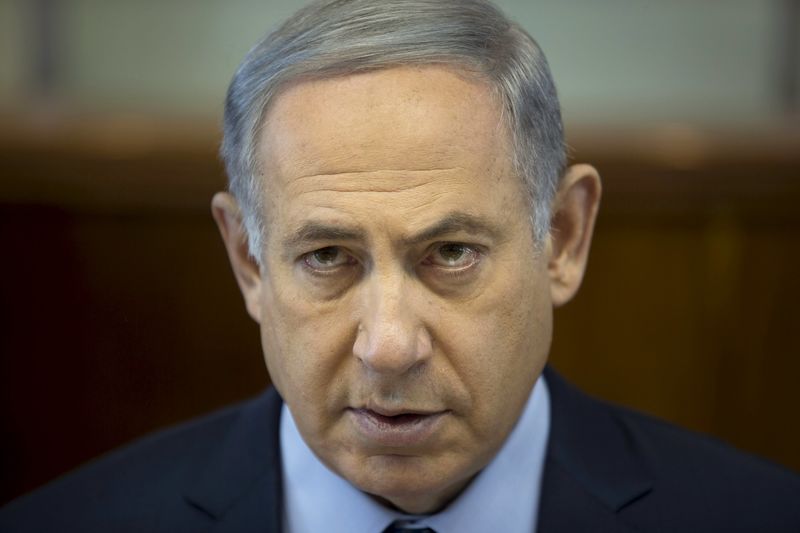By Matt Spetalnick and Roberta Rampton
WASHINGTON (Reuters) - Israeli Prime Minister Benjamin Netanyahu has declined an offer to meet U.S. President Barack Obama at the White House later this month and canceled his trip to Washington, the White House said on Monday.
Netanyahu's decision to nix his U.S. visit marked the latest episode in a fraught relationship with Obama that has yet to recover from their deep differences over last year's U.S.-led international nuclear deal with Iran, Israel's arch foe.
The White House said the Israeli government had requested a Netanyahu meeting with Obama on either March 18 or 19 and that two weeks ago he was offered a March 18 encounter.
"We were looking forward to hosting the bilateral meeting, and we were surprised to first learn via media reports that the prime minister, rather than accept our invitation, opted to cancel his visit," White House spokesman Ned Price said in an emailed statement. "Reports that we were not able to accommodate the prime minister's schedule are false," he said.
The White House has announced Obama's plans to be in Havana on March 21 and 22 for a historic visit aimed at moving closer toward normalized relations with Washington's former Cold War adversary.
There was no immediate word from Netanyahu's office about the cancellation, which also comes as the two close allies are struggling to negotiate a new 10-year, multibillion-dollar defense aid agreement for Israel.
Israel's Channel 10 TV, citing unnamed Israeli sources, said Netanyahu's decision to scrap the trip appeared to be motivated by reluctance to be perceived as interfering in the U.S. presidential election campaign, should any candidates seek to meet him in Washington.
Netanyahu also saw little to show for such a trip, given that the new defense Memorandum of Understanding is "far from being agreed yet," Channel 10 said. Several Israeli media quoted Israeli officials as saying that no appropriate time could be found for the meeting before Obama's departure for Cuba.
Netanyahu had been expected to visit Washington this month not only to see Obama but to address the annual conference of the leading U.S. pro-Israel lobby, AIPAC. In the past he has sometimes spoken to the group via satellite.
The prime minister made a speech to the U.S. Congress last March criticizing the then-emerging Iran nuclear deal and was denied a meeting with Obama during that visit in what was widely regarded as a diplomatic snub.
But the two leaders met at the White House in November and sought to mend ties.
In recent months, differences over defense aid have underscored continuing tensions over the Iran deal.
Netanyahu and his aides suggested in February if Israel were unable to reach an accord with Obama, it could wait for the next president to secure better terms. Current U.S. defense aid to Israel, worth about $3 billion annually, expires in 2018. The two sides are seeking an extension before Obama leaves office in January 2017.

U.S. Vice President Joe Biden, on a five-day trip to the Middle East, is due to visit Israel later this week and hold talks with Netanyahu.